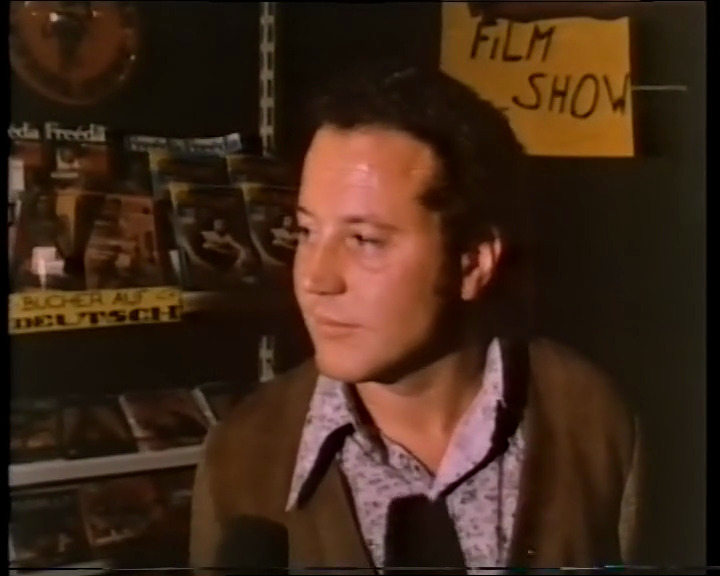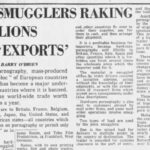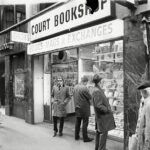Who is this man? In grainy footage from John Lindsay’s 1973 documentary The Pornbrokers, we catch a glimpse of someone who may be one of Britain’s most successful pornography entrepreneurs: John Frederick Ernest Darby. He appears in the midst of some vox pops with people offering their view on Denmark’s decision to legalise pornography. It begs question why is a thick-accented Birmingham man in Denmark during the filming of Lindsay’s documentary.
Given that John Darby originated from Birmingham and served as Lindsay’s producer and distributor in the early 1970s it seems very likely that he could be the anonymous Brummie in this clip. Darby’s story reveals the dangerous world of corruption, international smuggling, and criminal enterprise that thrived in the shadows of 1970s Britain, when he became perhaps the most powerful distributor of mail-order pornography.
The Harrow Arrest: When Everything Unraveled
On November 22, 1972, John Darby was loading his car in Harrow, Greater London, when local police officers pulled him over for a routine stop. What they discovered in his vehicle would unveil one of Britain’s most sophisticated mail-order pornography operations. Darby wasn’t just any small-time operator. In a police interview, he claimed to have been running his illicit trade since 1969, capitalising on Denmark’s recent legalisation of pornography to smuggle hardcore material into Britain. But this wasn’t Soho—this was suburban Harrow, and these weren’t the corrupt Metropolitan Police officers he’d grown accustomed to dealing with.
In the boot of Darby’s car, officers found 608 pornographic magazines, 35 8mm film reels, and 16mm negatives for 14 films. But the real breakthrough came when they found keys in Darby’s pockets. One sharp-eyed officer noticed the car was parked near some garages and decided to test his hunch. The keys fit. What they discovered next was described as an “Aladdin’s cave” of pornographic material—the nerve center of Darby’s entire operation.
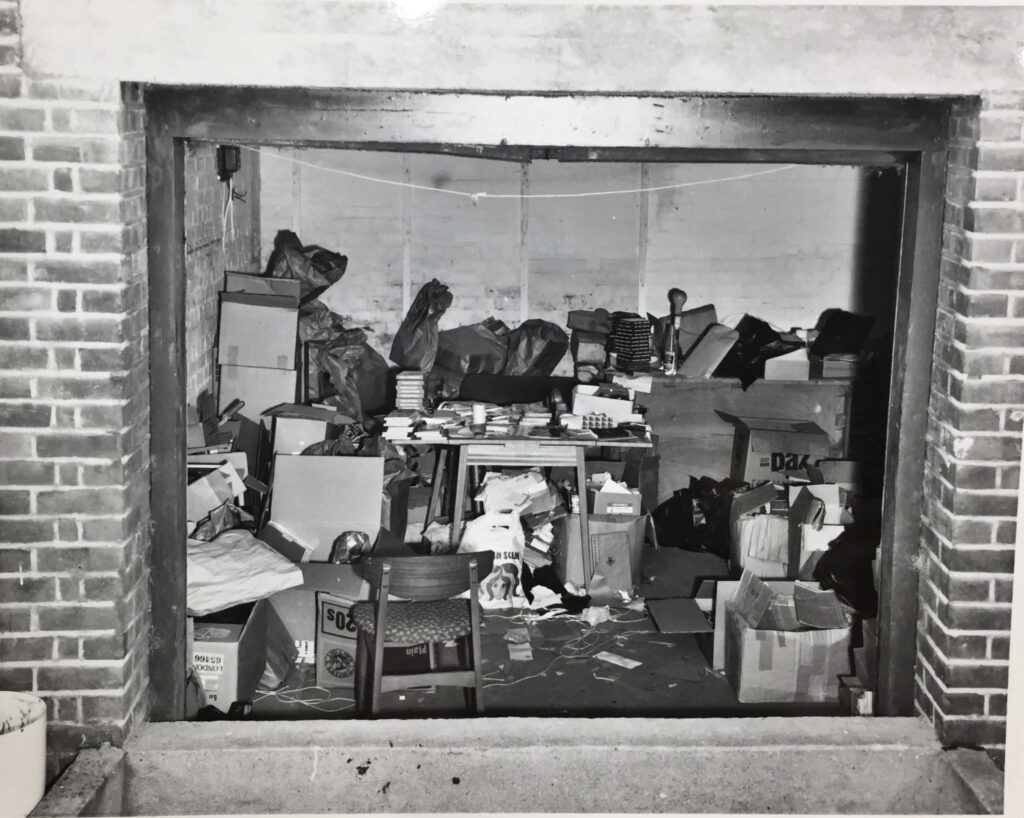
The officers seized:
-4,391 magazines across 73 different titles
-354 novels (21 titles)
-379 titled 8mm film reels (51 titles)
-601 packets of playing cards
-17,544 empty film cartons
-Master negatives for professional film production
The estimated retail value? Between £250,000-£400,000—equivalent to £3.5-5.7 million today. This wasn’t just distribution; this was industrial-scale production and smuggling.
From Fashion Retailer to Pornographer
Darby claimed that his journey into Britain’s pornography underworld began almost accidentally in 1969. During a trip to Denmark, he discovered that hardcore pornography—illegal in Britain—could be purchased legally over the counter. He bought some material and posted it to friends back home. When Customs and Excise caught him at re-entry, most people would have learned their lesson. Darby saw a business opportunity.
He moved from Birmingham to London, leaving behind a fashion retailing business to partner with operators already established in New Compton Street, Soho. His contribution was simple but effective: placing classified ads in the classified advertising magazine Exchange and Mart, advertising “scans” (trade slang for Scandinavian hardcore magazines) for sale.
What made Darby’s operation remarkable wasn’t just its scale, it was how openly corrupt the system had become. His partners were already paying £25 per week (£389 in today’s money) to a junior officer in the Obscene Publications Squad (OPS) for a “licence” to operate. The arrangement was brazenly systematic:
-Multiple business names operating from different addresses
-A £100 monthly “license fee” to corrupt officers
-Purchased mailing lists containing 5,000 potential customers
-Even a list of people who’d complained about unsolicited mail, so they could be removed
When Darby was briefly imprisoned on earlier charges, OPS officers visited him in jail, suggesting he take blame for his London partners’ operations in exchange for protection. After his successful appeal reduced his sentence to just a fine, he contacted his corrupt police contact to restart operations.
The Producer Behind Britain’s Most Prolific Pornographer
What made Darby’s operation truly groundbreaking wasn’t just distribution—he was producing original British content on an industrial scale. His most important collaborator was John Lindsay, a glamour photographer who would become Britain’s most prolific pornography filmmaker of the 1970s. Lindsay’s entry into the business is discussed in an interview I posted a while back. Originally a fashion photographer, Lindsay made money selling nude photos of a “world-famous model” he was involved with, earning 60% of foreign sales. “If that kind of money is to be made from pictures of girls without their clothes on,” he reasoned, “why am I shooting fashion?”
Lindsay opened a studio in Covent Garden, coincidentally next door to John Darby’s headquarters. He noticed women frequently visiting Darby’s premises and eventually learned they were making rollers. Initially, Lindsay bought films from Darby to screen for his clients on Friday afternoons—a glimpse into the male-dominated world where such material was consumed. The partnership that would transform British pornography began when Darby asked Lindsay if he’d be interested in making films himself. Lindsay’s response was cautious: “As long as it’s legal, I’ll do it.” After confirming his legal position with a solicitor, Lindsay agreed to shoot films for Darby while having no responsibility for distribution. He began “churning them out every weekend,” eventually producing over 100 films, with 35 made specifically for export markets.
This producer-distributor partnership showed criminal innovation. Darby ran six different mail-order addresses under various aliases, including one important technique: maintaining a PO Box in Denmark while dispatching orders from within Britain. This early example of international mail forwarding served two purposes—it avoided customs interference and exploited Denmark’s notorious reputation to attract customers. Orders would be phoned from Denmark to Darby in London, then fulfilled domestically. While importing from major Scandinavian producers like Color Climax and Lasse Braun, Darby was simultaneously distributing original British content through labels including International Films, Universal Films, and Taboo—much of it produced by Lindsay.
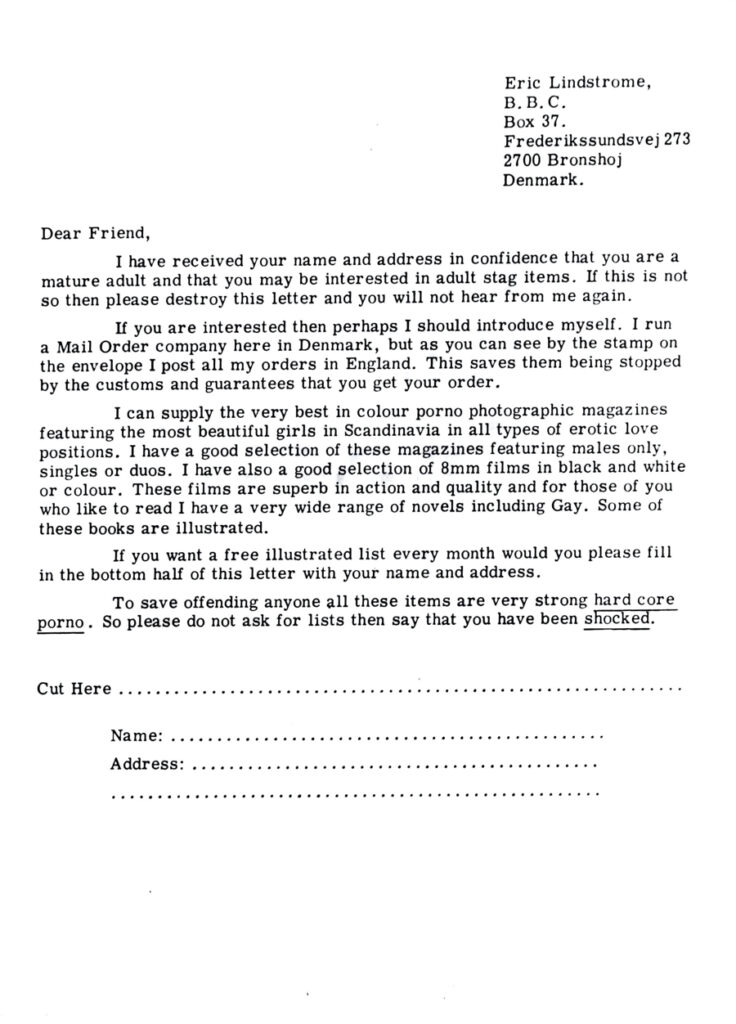
The Fatal Mistake: Operating Outside the Safety Zone
By 1971, Darby was paying £200 per month (£2,848 today) to the OPS and felt virtually untouchable. His operation had grown beyond simple distribution—he was becoming Britain’s leading producer-distributor of original hardcore content. When uniformed police—unaware of his arrangement—arrested him with hardcore material in his car, the charges mysteriously disappeared. But Darby made a crucial error: he operated outside Soho’s protective bubble of corruption. The Harrow officers who stopped him in November 1972 had no connection to the OPS, no knowledge of any “arrangements,” and no reason not to do their jobs properly. They were simply local police doing routine work—exactly the kind of honest policing that Darby’s corrupt network couldn’t control.
Darby’s arrest triggered a wider investigation that would eventually lead to the Watford Blue Movie Trial, which brought unprecedented public attention to Britain’s porn industry. Among his seized documents, police found invoices linking him to fellow pornographer Anthony Collingbourne, a connection that would unravel an entire network of production and distribution. Darby fled to the Netherlands, being protected by fellow European pornographers. But this wasn’t the end of Darby’s story. The man who built his empire by exploiting legal loopholes would find himself caught in another one—this time involving European law.
R v Darby and Henn
Britain’s entry into the Common Market in 1973 created new complications for pornography enforcement. In 1975, Darby—now partnered with Maurice Henn—was arrested again when a shipment of pornography from Rotterdam was seized at Felixstowe.
Indicted under multiple acts including the Customs Consolidation Act 1876, the Customs and Excise Act 1952, and the Obscene Publications Act 1959, both men were convicted in 1977. But Darby wasn’t finished fighting. They appealed, arguing that the 1952 Act breached EEC law—specifically Article 28 of the Treaty of Rome—by restricting the free movement of goods. It was a clever legal gambit from a man who had spent his career finding loopholes, but this time the court rejected his appeal. The case of R v Henn and Darby (1980) was a landmark decision in both UK and European Union law, addressing the tension between national public morality standards and the EU’s principle of free movement of goods.
From Empire Builder to Projectionist
The grainy figure in The Pornbrokers footage may or may not be John Darby, but his story reveals the shadowy world that such figures inhabited, where enormous profits, systematic corruption, innovative criminality, and legal loopholes created Britain’s first major mail-order pornography operator. He didn’t just distribute foreign content, his fruitful partnership with Lindsay and distribution deals with other producers contributed to the expansion of Britain’s domestic pornography film business.
Darby’s arc embodies the rise and fall of an era when Britain’s pornography laws were chaotic enough for entrepreneurs to build empires in the gaps. Timeline questions remain: while Lindsay claims to have started in 1967 following the introduction Sexual Offences Act, and Darby testified he began in 1969, evidence suggests both may have been active earlier than they admitted. Lindsay later claimed to have shot over 100 films by 1970, with 35 for export—suggesting a much larger operation than either man initially revealed to authorities.
In a fitting twist of fate, Darby’s final known role reversed his original partnership with John Lindsay. The man who had once been Lindsay’s distributor and enabler ended up working as a projectionist for Lindsay’s cinema clubs—a fall from entrepreneur to cinema employee. After this, John Darby drifted into obscurity, his empire-building days long behind him.

